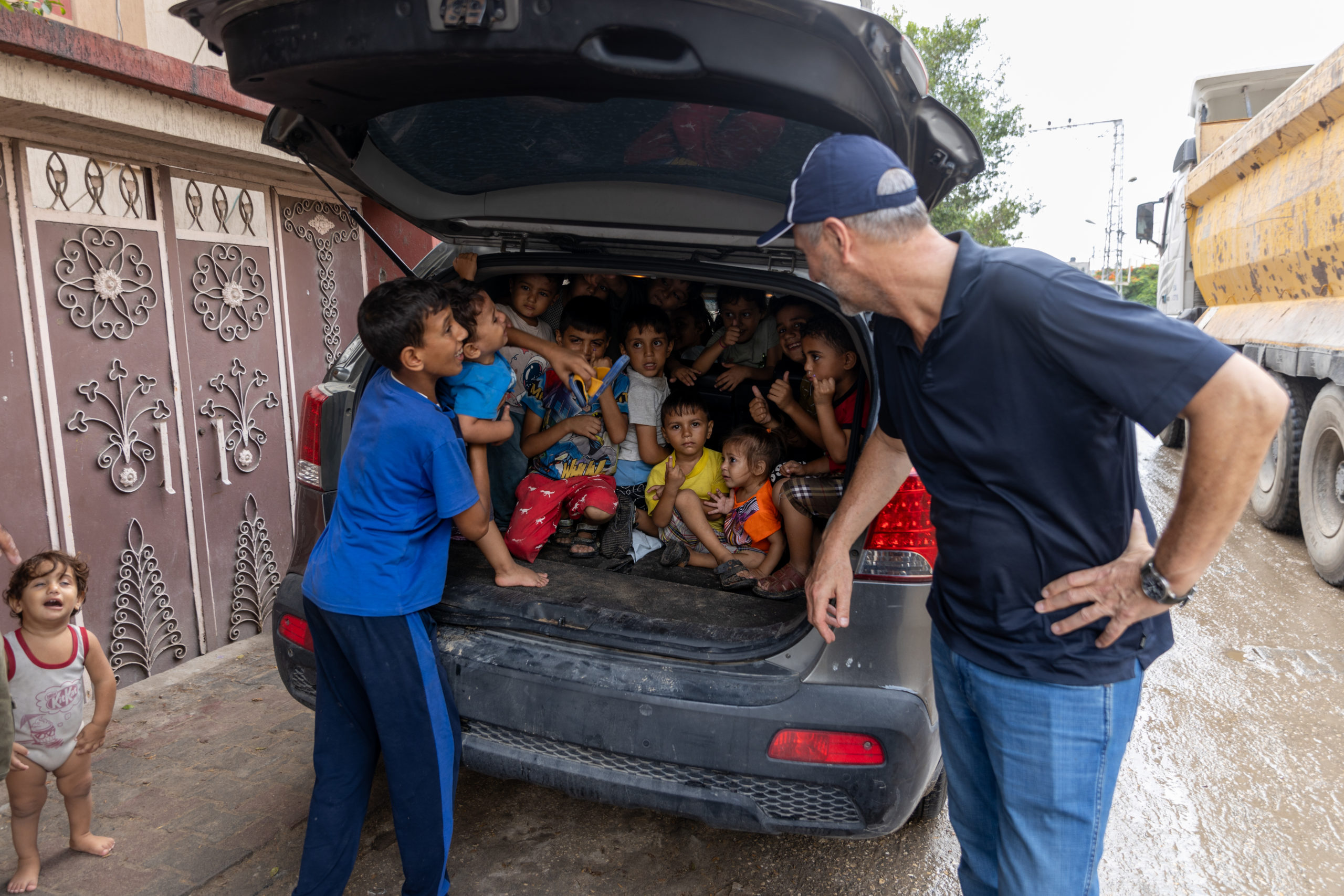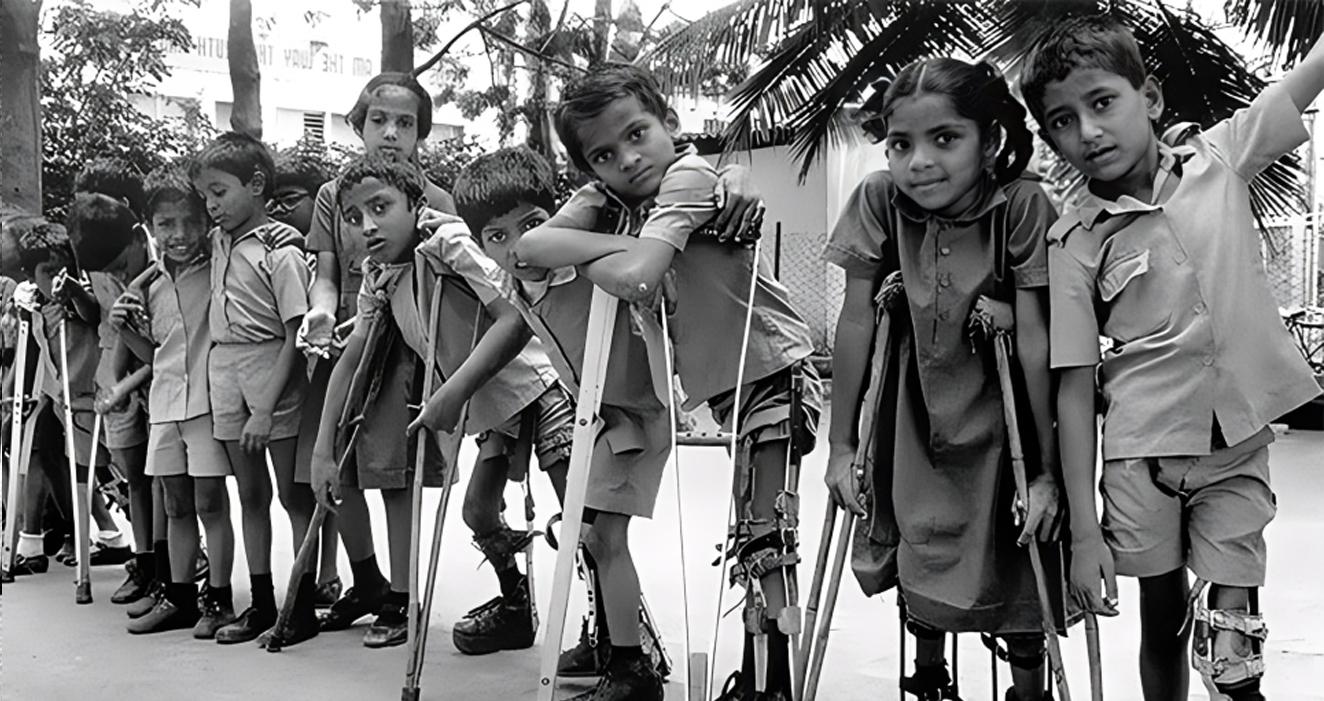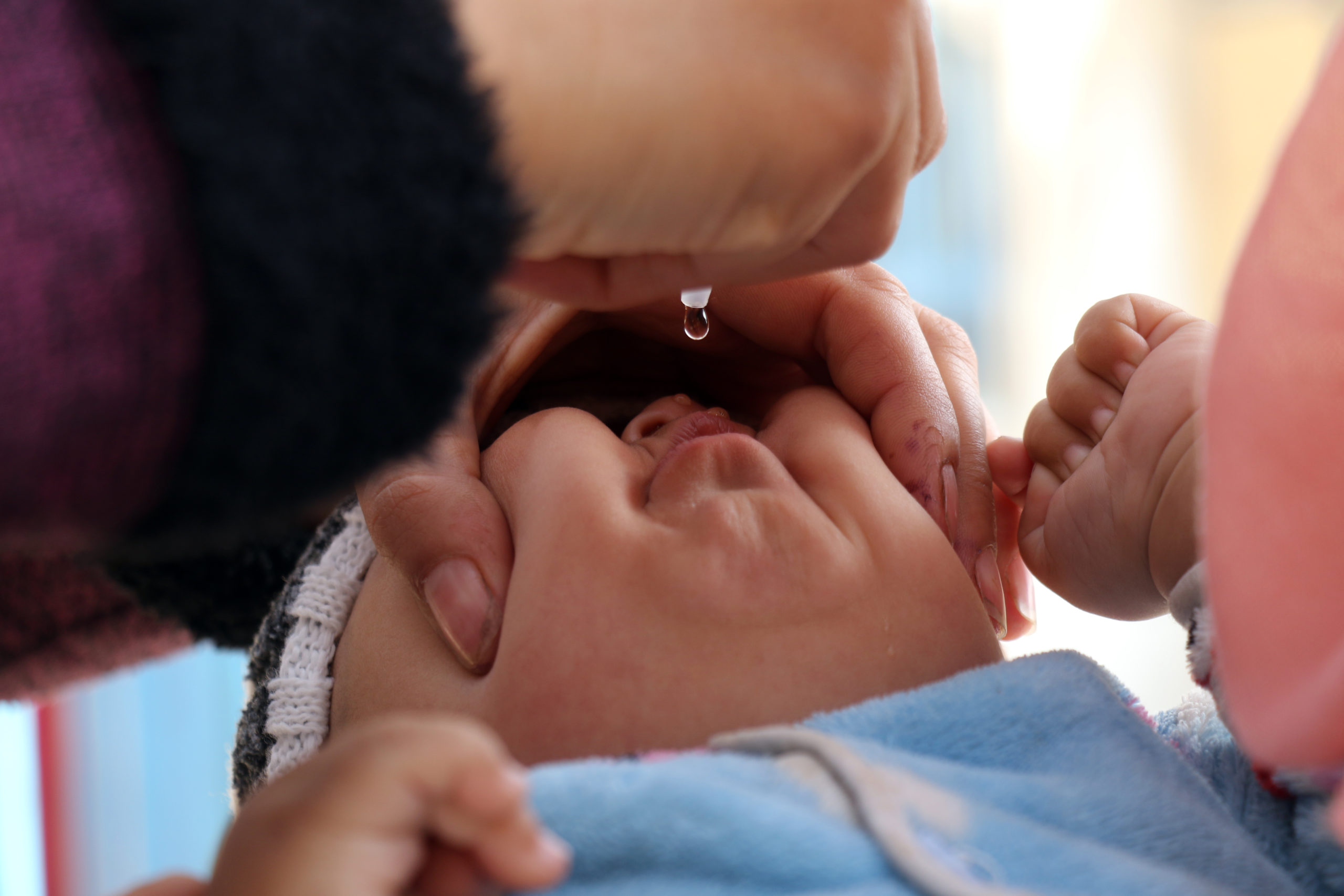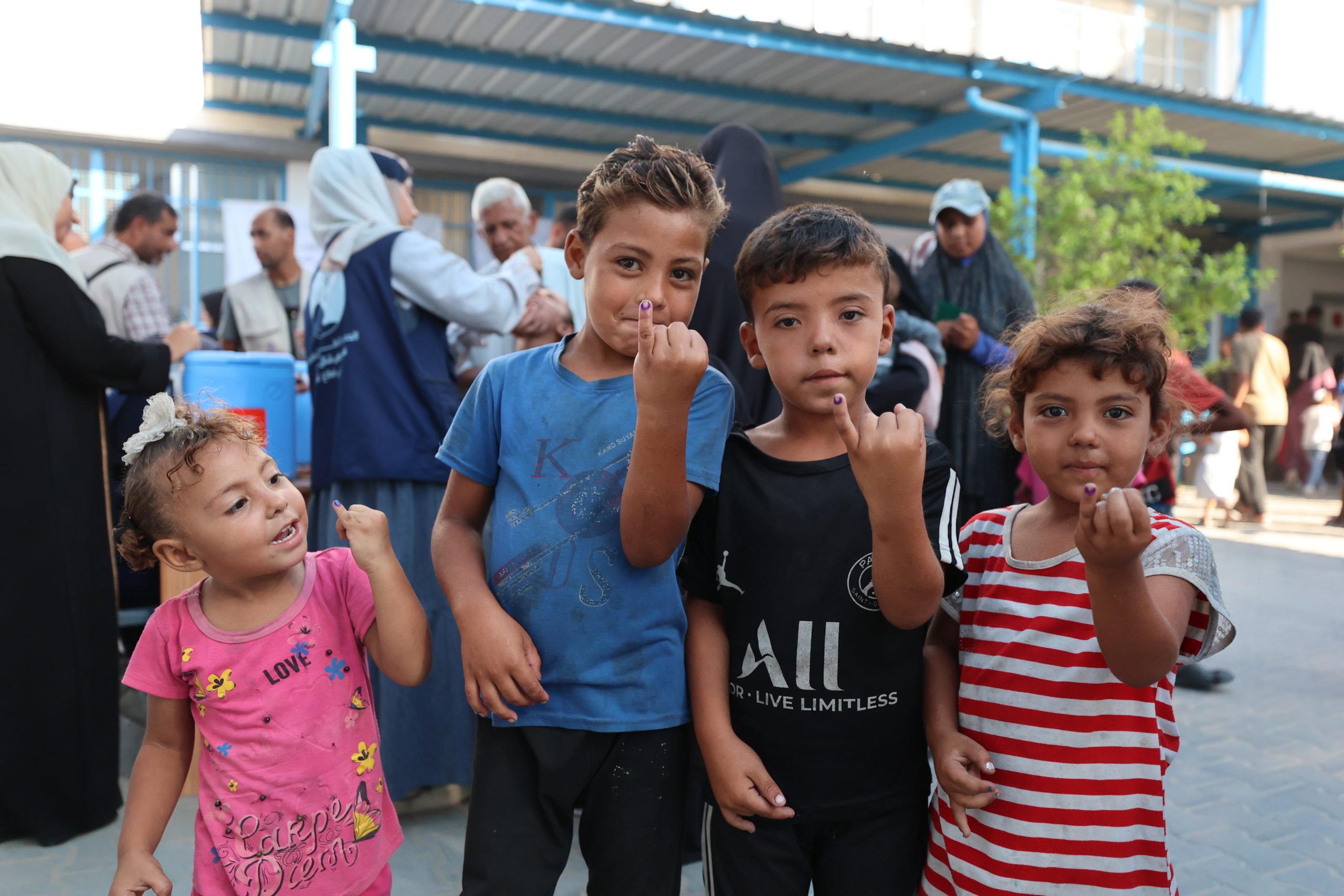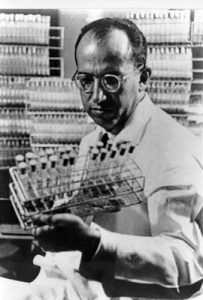
Today is the 100th birthday of Jonas Salk, the man who developed the inactivated polio vaccine (IPV) that enabled millions of children to grow up safe from polio. Before the development of a vaccine, polio caused parents everywhere to live in fear as it spread invisibly, taking healthy children and leaving them paralysed within hours.
IPV is one of 2 vaccines used in the drive to eradicate polio to protect children worldwide from incurable paralysis. The development of the oral polio vaccine (OPV) by Albert Sabin in 1961 was another game changer for polio eradication, using a weakened strain of wild poliovirus (WPV) to develop immunity. Easier to administer than the injectable IPV, OPV has a unique ability to interrupt person-to-person spread of the virus, so became critical in the global drive to eradicate the disease.
With the 60th anniversary of the development of the first polio vaccine coming up in 2015, the discovery of both vaccines can be celebrated as miracles of modern medicine. Only 3 countries remain where polio has never been eradicated, and all countries but 1 (Pakistan) have fewer cases in 2014 than they have ever seen before. With eradication in our grasp, both vaccines play a more important role than ever in the GPEI’s Polio Eradication & Endgame Strategic Plan 2013-2018. New evidence clearly demonstrates that adding one dose of IPV to multiple doses of OPV is the most effective method available to stop the virus and protect children. Within the next years, IPV will be introduced as part of efforts to strengthen routine immunization system of countries across the world, enabling us to eradicate both wild poliovirus and address the small risk of vaccine-derived poliovirus associated with OPV use.
This World Polio Week, the Federation of Islamic Medical Associations (FIMA) launched a call to action to Muslim physicians from across the world to join the urgent effort to protect all children against all vaccine preventable diseases with a special focus on polio. This demonstrates an increased global commitment to ensuring that every child is reached with polio vaccine. In 2014, Pakistan accounts for 85% of cases of polio worldwide, and is one of the main exporters of the virus having caused the outbreak in the Middle East in 2013. The call to action advocates for Islamic physicians to take responsibility for educating families on the safety and importance of vaccines and for the rights of communities to have access to quality healthcare. Read more here
This World Polio Week, let’s commit to finishing what Jonas Salk and Albert Sabin started with the development of effective polio vaccines. Reaching every child with polio vaccine is absolutely crucial in stopping the transmission of the virus; and failing to ensure this protection is unconscionable when both vaccines are now so affordable and easily available.
“I WORK TO ERADICATE POLIO BECAUSE…
…I grew up in Morocco with two disabled brothers and many others around me in the streets. I always thought that if my brothers could have had the right medical care at the right time, they would have had a chance to live a normal life.”
LEILA KADRI, GLOBAL POLIO ERADICATION INITIATIVE
